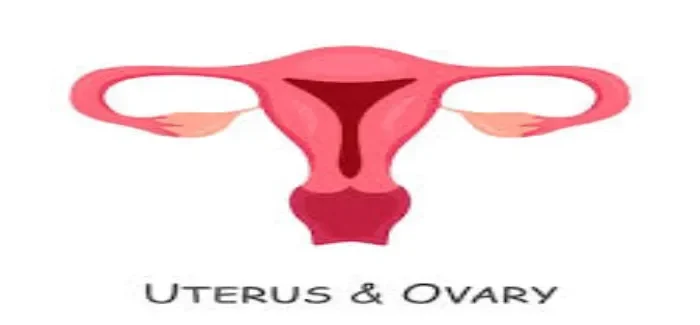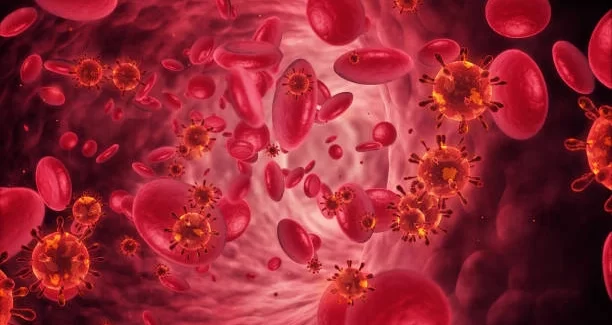Miscarriage: What Causes It? Why Does It Happen? Everything To Know!!

Posted Date: March 17th, 2023
Miscarriage is a heartbreaking experience that can be incredibly confusing and overwhelming for many couples who are anxious to start or enlarge their family. Although it is estimated that one in four pregnancies ends in miscarriage the experience of losing a baby can leave parents feeling alone, lost and helpless about what might have caused the pregnancy loss. To help provide some insight into this sensitive topic, we’ll explore why miscarriages occur, ways to reduce your risk and how you can take action afterward should you suffer from a pregnancy loss. By the end of this helpful article, our goal is that you feel informed and empowered enough to take control of your reproductive journey while being better prepared for whatever comes ahead should a similar situation arise again.
What is miscarriage?
Miscarriage is the term used for a pregnancy loss that occurs before 20 weeks of gestation. It’s estimated that about 10 to 15 percent of recognized pregnancies end in miscarriage, but many cases go unnoticed since they occur so early on. Miscarriage can be a deeply emotional and traumatic experience so it’s important to recognize the gravity of losing a baby.
What are the different types of miscarriage?
There are different types of miscarriages and the names given to them depend on when they occur. Depending on the severity of your symptoms and which trimester you are in, your physician will be able to diagnose your condition from a selection of possible options accurately:
(1) Missed miscarriage: A missed miscarriage occurs when the fetus or embryo dies in utero, but the body does not recognize and expel it naturally. This eventually happens in the week after the missed period and is noticed when no signs of life are on ultrasound.
(2) Threatened miscarriage: This type of miscarriage happens in the first trimester when vaginal bleeding occurs but the cervix remains closed. This could be a sign that your body is trying to abort the pregnancy or it may just be a normal part of the pregnancy process.
(3) Inevitable miscarriage: An inevitable miscarriage is one where the cervix is open and the body is in the process of expelling a fetus or embryo that has already died in utero.
(4) Partial Miscarriage: A partial miscarriage occurs when part of the pregnancy tissue is expelled from the uterus, but some remains inside.
(5) Complete Miscarriage: A complete miscarriage is when all of the pregnancy tissue has been expelled from the uterus. However some women may still experience cramping and bleeding for up to a few weeks after the miscarriage.
(6) Incomplete miscarriage: This type of miscarriage is when some of the pregnancy tissue has been expelled, but there is still evidence of fetal matter remaining inside the uterus.
(7) Recurrent Miscarriage: Recurrent miscarriage is when a woman has three or more consecutive miscarriages. Moreover some medical experts also consider two or more miscarriages as recurrent miscarriages.
Hence, understanding the different types of miscarriages is important to diagnose and treat the condition better. As a result the right treatment can help reduce the risk of complications and lessen the chances of another miscarriage.
What signs and symptoms may indicate a miscarriage?
The signs and symptoms of a miscarriage can vary from person to person, but the most common include the following:
(i) Bleeding: Bleeding is usually the first sign of a miscarriage and can range from light spotting to heavy bleeding. However, bleeding alone isn’t always a sign of a miscarriage, as it can also indicate an ectopic pregnancy or another health issue.
(ii) Cramps: Cramping and abdominal pain are common during the early stages of pregnancy and can be a sign of miscarriage if accompanied by bleeding. As with bleeding, cramping can also be due to other health issues so it’s important to seek medical attention if you experience any.
(iii) Back pain: Lower back pain, either constant or intermittent, can sometimes indicate a miscarriage. Although this isn’t always the case it’s best to get checked by a doctor if you’re experiencing pain in your back.
(iv) Emotional distress: Losing a baby can be an incredibly emotional experience and many women feel overwhelmed with grief or depression. It’s important to be aware of any signs of distress or mental anguish you may be feeling after a miscarriage.
(v) Fetal tissue: In some cases it’s possible to see fetal tissue or a placenta in the uterus during a miscarriage. This can be an emotionally difficult experience for many women and should be discussed with your doctor if this occurs.
Furthermore, if you are experiencing any of these signs it’s important to see a doctor right away, as they will be able to conduct a physical examination and provide the best course of action.
What causes miscarriages?
Miscarriages can occur for many reasons some being more common than others. The most common causes are:
(a) Genetic problems: Chromosomal abnormalities in the developing baby are a leading cause of miscarriage, accounting for up to 60-75% of all miscarriages. Chromosomal abnormalities occur when the embryo has an abnormal number of chromosomes (too many or too few).
(b) Hormonal imbalances: Hormone imbalances, such as a luteal phase defect, can lead to miscarriage. This occurs when the hormones that control ovulation and implantation are not functioning properly, meaning that the embryo does not implant in the uterine wall.
(c) Uterine or cervical abnormalities: Abnormalities of the uterus, such as polyps or fibroids, can cause miscarriage as they may impede implantation or disrupt normal placental development. Cervical abnormalities such as a weak cervix can also lead to miscarriage.
(d) Infections: Certain infections, such as listeria and toxoplasmosis, can cause miscarriages as they can affect the baby’s development in the womb. However, if detected early, many of these infections can be treated and the pregnancy saved.
(e) Uterine trauma or other medical conditions: Traumatic events such as a fall, car accident or underlying medical conditions such as uncontrolled diabetes or thyroid disease can lead to miscarriage.
(f) Immune system issues: In some cases the immune system may mistakenly attack the pregnancy, leading to miscarriage. This is more likely in women who have a history of recurrent miscarriages or unexplained infertility.
(g) Lifestyle factors: Smoking, excessive alcohol consumption and other lifestyle factors can increase the risk of miscarriage. It’s important to talk to your doctor about any changes you can make to reduce the risk of miscarriage and ensure a healthy pregnancy.
In some cases the cause of a miscarriage may remain unknown. In such cases, discussing with your doctor and ensuring any underlying conditions are managed before trying for another pregnancy is important.
What treatments are available for miscarriage?
Miscarriage is a common and natural process, but it can be emotionally distressing for many women. Treatment options depend on the stage of pregnancy and vary from supportive care to medical management or surgery.
(i) Supportive care: In cases where the miscarriage is complete and the pregnancy has ended, supportive care is often recommended. This involves monitoring for signs of infection or complications and emotional support for grieving parents.
(ii) Medical management: In cases of incomplete miscarriage, medical management may be an option. This usually involves a course of medication to help the body expel the fetal tissue and complete the miscarriage.
(iii) Surgery: In some cases, either a dilation and curettage (D&C) or a suction procedure may be necessary to remove any remaining tissue from the uterus. This is usually recommended when there is heavy bleeding or other treatments have not successfully completed the miscarriage.
(iv) Follow-up care: After a miscarriage, following up with your doctor for regular check-ups and testing is important. They may also prescribe medication or supplements to help restore hormonal balance, reduce the risk of recurrent miscarriages and prepare the body for another pregnancy.
It is important to seek professional medical advice if you think you may have experienced a miscarriage. Your doctor will be able to advise you on the best course of treatment and provide emotional support during this difficult time.
QUES: 1 Can stress cause a miscarriage?
ANS: Yes there is a link between stress and the risk of miscarriage. Studies have shown that when a woman experiences stressful life events such as relationship difficulties, financial issues, traumatic events or other life changes in late pregnancy (after 20 weeks of gestation) it can increase her risk for early pregnancy loss.
Stress hormones like cortisol are released into the bloodstream in response to physical or emotional pressure. High levels of cortisol can disrupt the fetus’ development and circulation in pregnant women. Changes in blood flow to the uterus can decrease nutrient supply and oxygen to the baby which may contribute to an increased risk of miscarriage. Experiencing chronic stress during pregnancy could also reduce progesterone production; this hormone is essential for maintaining a healthy pregnancy and low levels may be linked with increased miscarriage risk.
Though science has proven that prolonged stress levels can affect fetal health adversely it’s important to remember that miscarriages are incredibly common —upwards of 10-20 percent— so having occasional or even regular bouts of moderate stress does not necessarily mean you will miscarry your baby). It’s best to seek professional help if necessary to ensure your mental health during one of the most important times: Pregnancy!
QUES: 2 How do you confirm a miscarriage at home?
ANS: Miscarriage is a heartbreaking experience and it is important to confirm the diagnosis as soon as possible so that you can take the necessary steps and start getting medical help or support.
At home there are some things you can look for to confirm a miscarriage. Here are some signs and symptoms of a miscarriage:
• Vaginal bleeding: Typically, this will be heavier than regular spotting but lighter than your period. There may also be clots in the discharge.
• Pain: Cramps similar to menstrual cramps increase in severity when walking or standing up. This can range from mild discomfort to severe pain with nausea and vomiting.
• Passing tissues: You may pass tissue that looks like grape-like clusters or white tissue clumps. This indicates the passage of fetal material out of your body – meaning an early miscarriage has occurred close to conception time (before 10 weeks).
If you suspect that you have experienced a miscarriage it’s important to contact your doctor or a healthcare provider immediately for further review and assessment so they can make sure you receive appropriate medical care or support when needed.
QUES: 3 How painful is a miscarriage?
ANS: Miscarriages can be both emotionally and physically painful. The physical pain of a miscarriage can vary depending on how far along the pregnancy was, but usually it is described as more intense period-like cramps that may last several hours. Emotionally it can be very distressing and hard to cope with. Women who experience a miscarriage often feel sadness or depression due to losing their baby. It is important to seek medical help as soon as possible if you experience any kind of bleeding or discomfort during your pregnancy so that proper tests can be done and guidance provided for any next steps.
QUES: 4 How long does a miscarriage last?
ANS: The duration of a miscarriage can vary greatly depending on the individual. Generally the process will last between 1-2 weeks and include varying levels of bleeding, cramping and other symptoms. It is important to note that physical symptoms do not always accompany miscarriages so if you experience no physical signs during this period it does not necessarily mean your miscarriage was unsuccessful.
During the first few days after a miscarriage, most women will experience an increase in vaginal bleeding which can last for up to several weeks. After the total amount of blood lost decreases significantly it is common for there to be some spotting or discharge for another week or two before completely ceasing altogether.
Additionally, many people may feel abdominal cramps similar to menstrual pain during this time frame and discomfort throughout their lower back area and pelvis. Finally, hormonal changes taking place at this time means that many people are prone to feeling emotionally and physically drained, with frequent headaches also being quite common during this recovery period.
The Bottom Line!
Miscarriage is an incredibly difficult experience, but it can be overcome with the right support and care. Being aware of the signs and causes of miscarriage can help you to seek medical help if needed and prevent further complications. If you’re concerned about a miscarriage, don’t hesitate to speak to your doctor. They will be able to provide you with support and advice. Remember it’s natural to feel grief and sadness when going through a miscarriage so make sure to take care of yourself and seek the support of family and friends if needed. We hope this article was helpful in understanding the signs, causes and treatments for miscarriages. If you think we’ve missed something, let us know.
Related Posts
Dr. Emily Carter is a seasoned health writer and wellness advocate at Healths News Today. With over a decade of experience in the healthcare industry, she specializes in translating complex medical information into easy-to-understand content that empowers readers to make informed decisions about their health.








